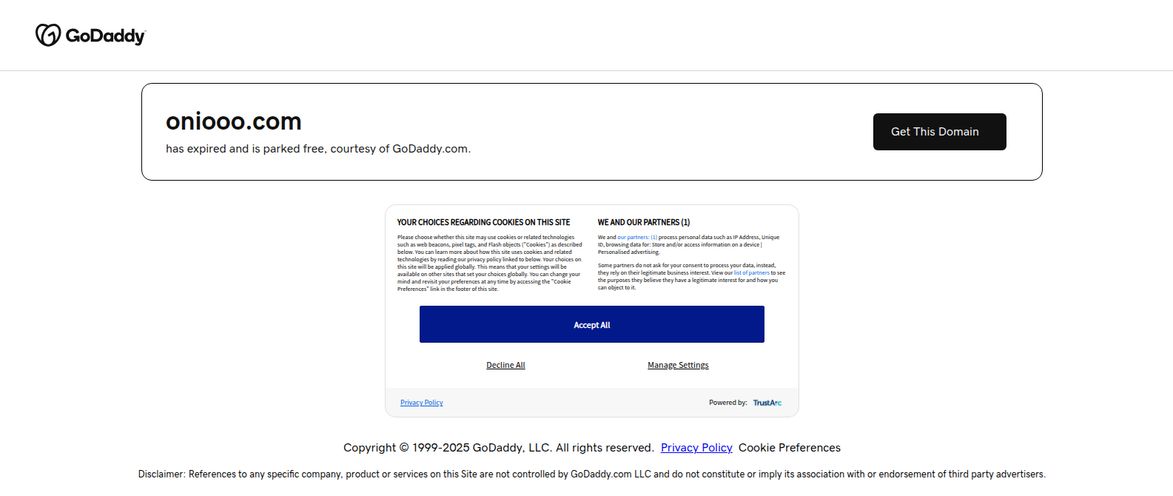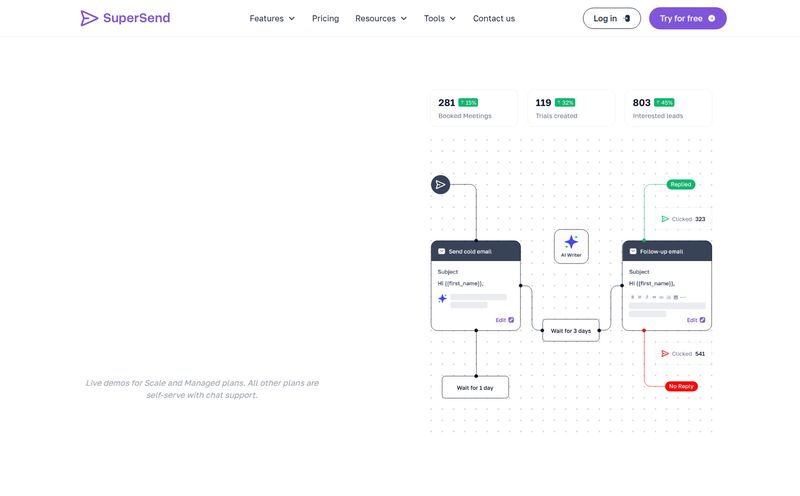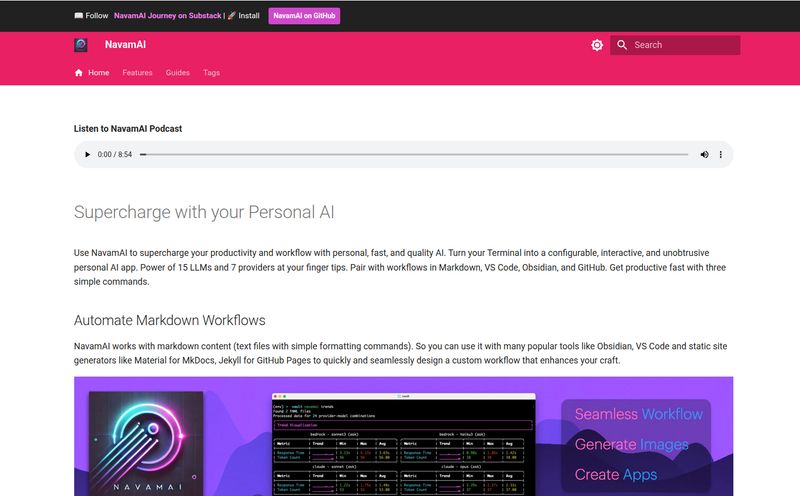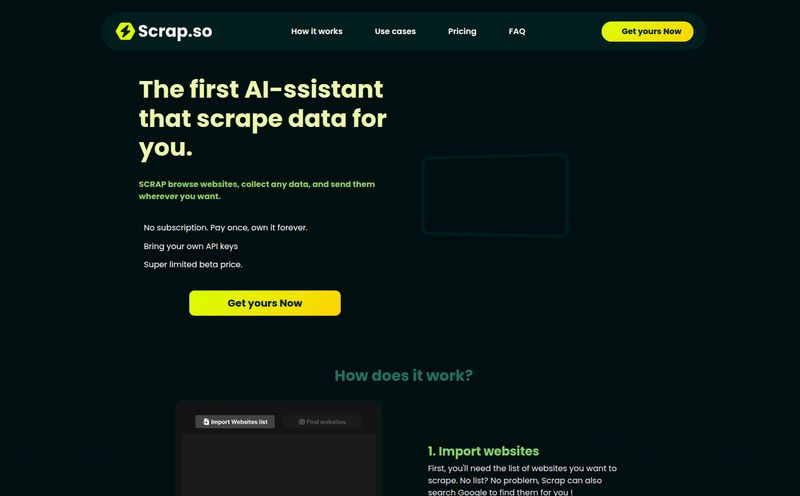We've all been there. You ask your smart speaker to play your favorite chill-out playlist, and it confidently blasts death metal. Or you ask your car's navigation for the quickest route, and its monotone, robotic voice sends you directly into a traffic jam, completely oblivious to the rising panic in your voice.
For years, we've been talking to machines that hear words, but they don't listen. They process commands, but they miss the nuance, the emotion, the very human texture of our voice. They have a brain, but no heart. And that, my friends, is a huge disconnect.
I’ve been in the digital marketing and tech space for a long time, watching trends come and go. And I'm telling you, the next major frontier isn't just making AI smarter; it's making it more empathetic. That's why I got pretty excited when I stumbled upon a German company called audEERING. Their tagline isn't just marketing fluff; it's a mission statement: "Turning tone into expression."
What is audEERING, Really? More Than Just Listening
So, what’s the secret sauce? audEERING isn't another speech-to-text engine. We have plenty of those. Instead, their AI specializes in audio analysis and speech emotion recognition. It’s designed to understand the how behind the what. It analyzes intonation, pitch, volume, and hundreds of other acoustic parameters to figure out the emotional state of the speaker.
Think of it like this: Reading the text "That's just great" is ambiguous. But when you hear it spoken with a heavy, sarcastic sigh... you get the real picture. audEERING is teaching machines to pick up on that sigh. It's the digital equivalent of emotional intelligence, and its a potential game-changer for human-computer interaction.
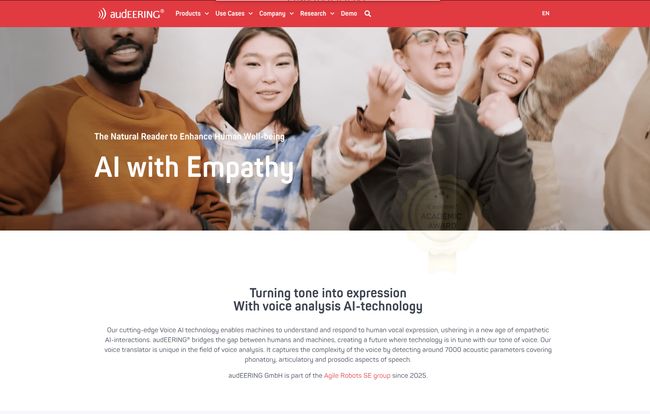
Visit audEERING
A Peek Into the audEERING Toolkit
audEERING isn't just one single product. It’s a suite of technologies designed for different needs, primarily for developers and enterprises looking to build this tech into their own products. It’s not exactly a consumer-facing app you can download.
For the Developers and Integrators: devAIce®
This seems to be their flagship offering. devAIce® is an SDK (Software Development Kit) and Web API that lets companies integrate audEERING’s core voice analysis tech into their own applications. It’s the foundational block for building emotionally aware products, whether it's for call centers, apps, or smart devices.
For the XR and Gaming World: devAIce® XR
Okay, this is where my inner geek gets really fired up. devAIce® XR is a specific plug-in for the Unity and Unreal game engines. Imagine playing a horror game where an NPC's behavior changes not because you hit a certain checkpoint, but because the game's AI detects genuine fear in your voice. Or a negotiation scene in an RPG where you can actually persuade a character by using a confident, reassuring tone. The possibilities for creating truly immersive and responsive worlds are just... staggering.
For Research and Health: AI SoundLab
This one feels incredibly important. AI SoundLab is presented as an audio data collector, specifically for analyzing voice-based biomarkers. This is deep science. We're talking about technology that could potentially help in healthcare by detecting signs of stress, fatigue, or even early indicators of neurological conditions like Parkinson's, just from the characteristics of a person's voice. This moves beyond convenience and into the territory of genuine, life-improving application.
Where Does This Tech Actually Get Used?
This all sounds very futuristic, but audEERING highlights some very practical, present-day use cases on their site. This isn't just lab-based theory.
- Market Research: Forget surveys where people just tell you what they think you want to hear. This tech could analyze vocal responses in focus groups to measure genuine excitement versus polite indifference. That’s gold for any brand trying to understand its customers.
- Automotive: We’ve already seen the beginnings of this with driver drowsiness detection. audEERING's tech can take it further. A car that knows you're stressed could suggest a calmer route, change the cabin lighting, or play some relaxing music. It becomes a co-pilot that’s actually in tune with you.
- Healthcare: As mentioned with AI SoundLab, the potential for remote patient monitoring and mental wellness apps is immense. A quick vocal check-in could provide doctors with valuable data points between appointments.
- Robotics & IoT: I’m not just talking about a talking toaster. Imagine a companion robot for the elderly that can respond with genuine empathy because it recognizes loneliness or distress in its owner's voice. That's a powerful vision.
The Good, The Bad, and The "Contact Us for Pricing"
Alright, let's get down to the brass tacks. As with any platform, it’s not all sunshine and revolutionary tech. Here's my professional take on the pros and cons.
On the plus side, the technology is undeniably cutting-edge. The focus on privacy, with explicit mentions of GDPR compliance, is a massive green flag. In a post-GDPR world, especially when dealing with sensitive biometric data like voice, this isn't just nice to have; it's absolutely non-negotiable. The fact that they offer customizable solutions also tells me they're geared towards serious enterprise clients with specific problems to solve.
Now for the reality check. This is not a simple, plug-and-play tool for the average blogger or small business owner. The website makes it clear that integration will likely require some real technical expertise. You'll need developers who are comfortable working with SDKs and APIs.
And then there's the classic elephant in the room: pricing. Like many B2B platforms in a niche space, audEERING doesn't list their prices. It’s the ol' "Contact us for a demo" model. This isn’t necessarily a bad thing; it just means we're not talking about a $50/month subscription. We're talking about enterprise-level contracts that are priced based on usage, scale, and the level of customization needed. Be prepared for a conversation, not a checkout page.
I also had a little adventure trying to dig deeper into their research section, only to be met with a "The page can’t be found" error. See? Even the most advanced AI companies have the occasional broken link. It kinda makes them feel more human, right?
My Final Take: Is audEERING Worth the Hype?
So, what’s the verdict? In my opinion, audEERING is a company to watch. Closely. This isn't a tool for everyone, and it’s not trying to be. This is for the innovators, the R&D departments at major automotive companies, the cutting-edge game studios, and the healthcare tech pioneers.
If you're looking for a simple tool to transcribe your meetings, this is overkill. But if you're looking to build the next generation of products—products that interact with users on an emotional level—then audEERING is one of the few players out there with the specialized tech to make it happen. It's a glimpse into a future where technology doesn't just serve us, it understands us.
Frequently Asked Questions about audEERING
- What does audEERING actually do?
- audEERING develops AI technology that analyzes the human voice to detect emotion and other states. It goes beyond simple speech-to-text to understand how something is being said, enabling more empathetic and natural interactions with machines.
- How much does audEERING cost?
- audEERING's pricing is not publicly listed. It operates on an enterprise model, which typically means you need to contact their sales team for a custom quote based on your specific needs, usage, and integration requirements.
- Is audEERING easy to use?
- For an end-user of a product powered by audEERING, it should be seamless. However, for a company looking to implement the technology, it requires technical expertise. Developers will need to work with their SDKs and APIs to integrate it into their own applications.
- What are some real-world applications for this technology?
- The tech has broad applications, including in market research to gauge genuine customer sentiment, in cars to detect driver stress, in healthcare for vocal biomarker analysis, and in video games to create more responsive characters.
- Is my data safe with audEERING?
- audEERING emphasizes security and privacy on its website, highlighting its compliance with GDPR, a strict data protection regulation. This suggests a strong focus on handling sensitive vocal data responsibly.
- What exactly is 'empathetic AI'?
- Empathetic AI is a branch of artificial intelligence focused on enabling systems to recognize, interpret, and respond to human emotions. The goal is to create more natural, supportive, and effective human-computer interactions, moving beyond purely functional command-and-response.
The Sound of the Future
For so long, our digital interactions have been emotionally one-sided. We feel, and our devices... process. Companies like audEERING are working to bridge that gap. The road to truly empathetic AI is long, and probably a bit complicated, but it's one of the most interesting developments in tech today. The idea that my future car might one day tell me to take a deep breath because it can hear the stress in my voice is, frankly, pretty amazing.
Reference and Sources
- audEERING Official Website
- Official GDPR Information Portal
- MIT Media Lab: Affective Computing Group Research - For more on the science of emotion AI.
